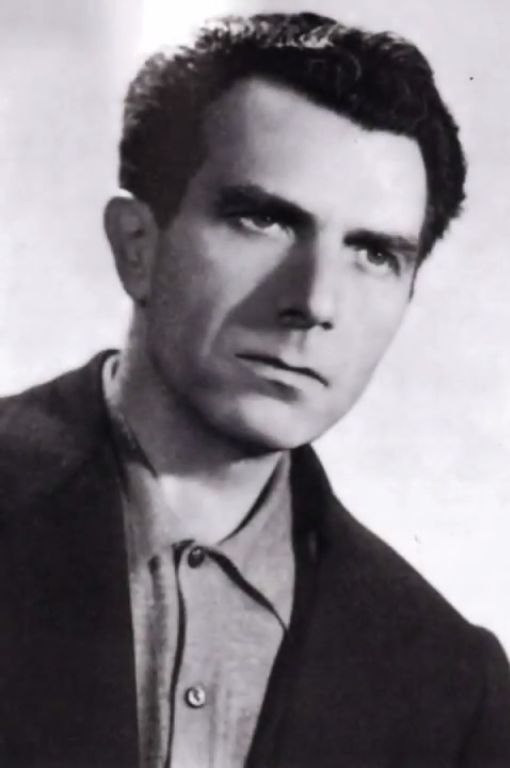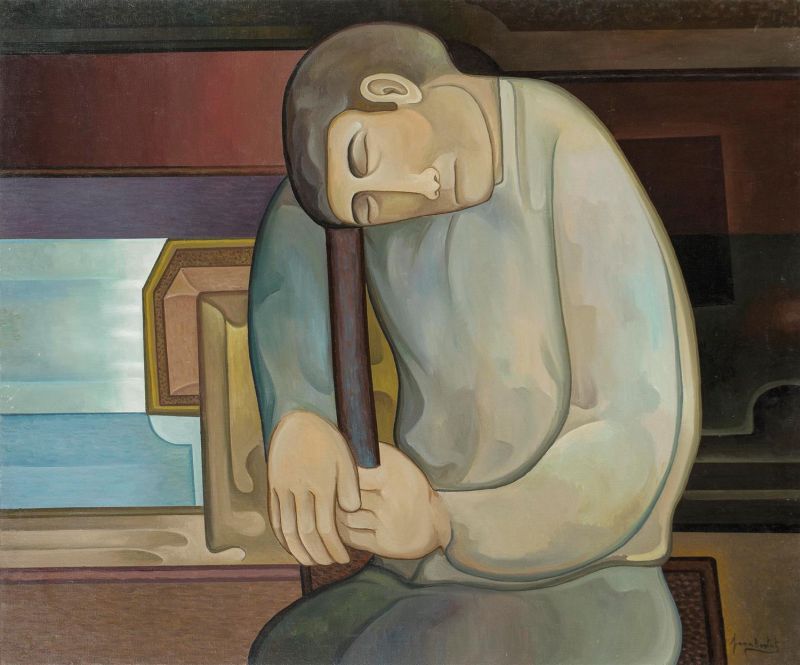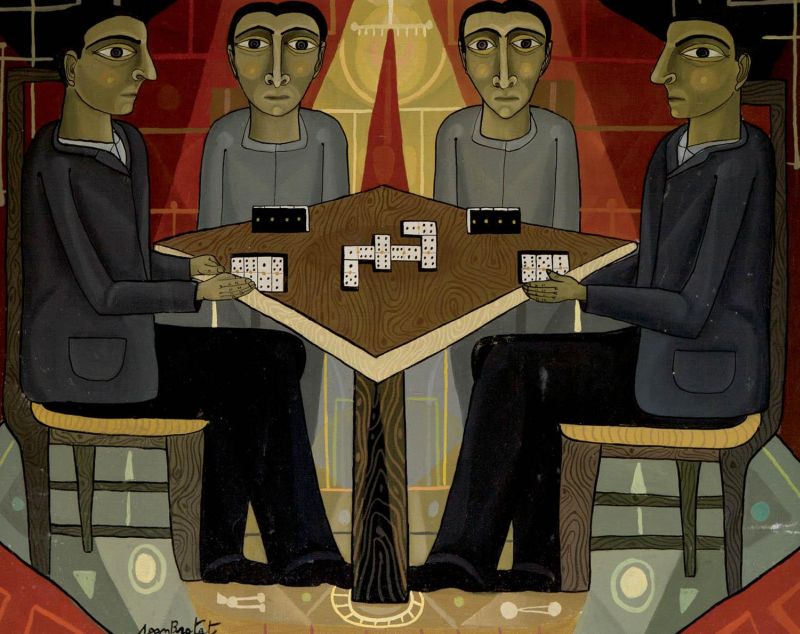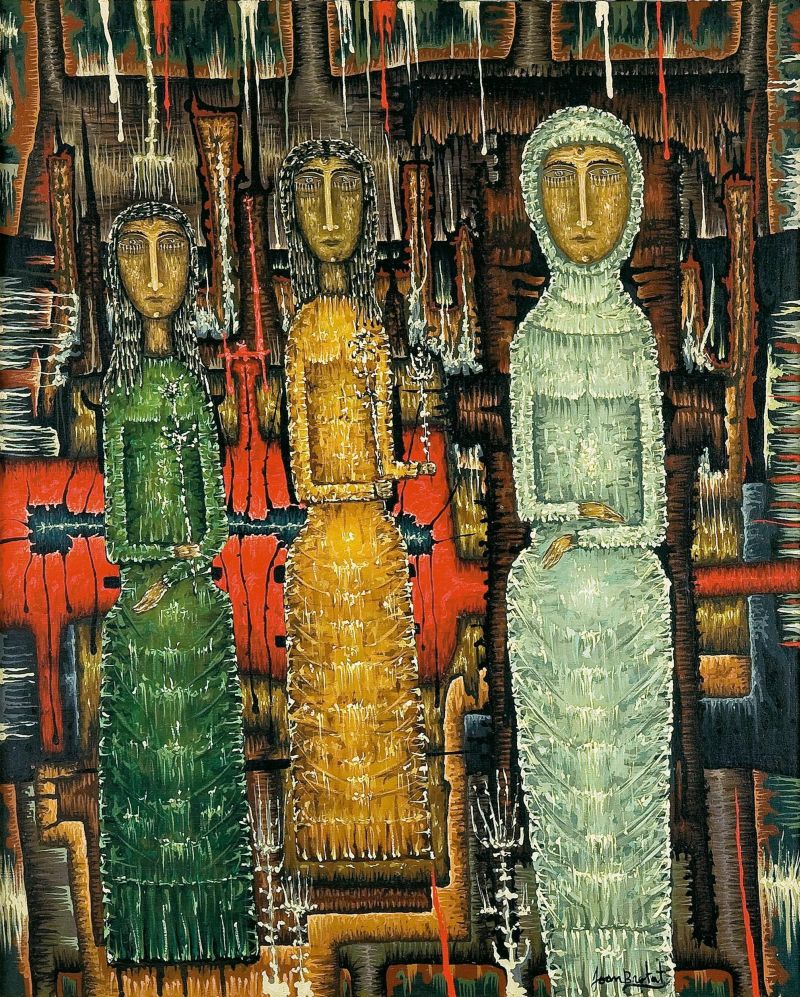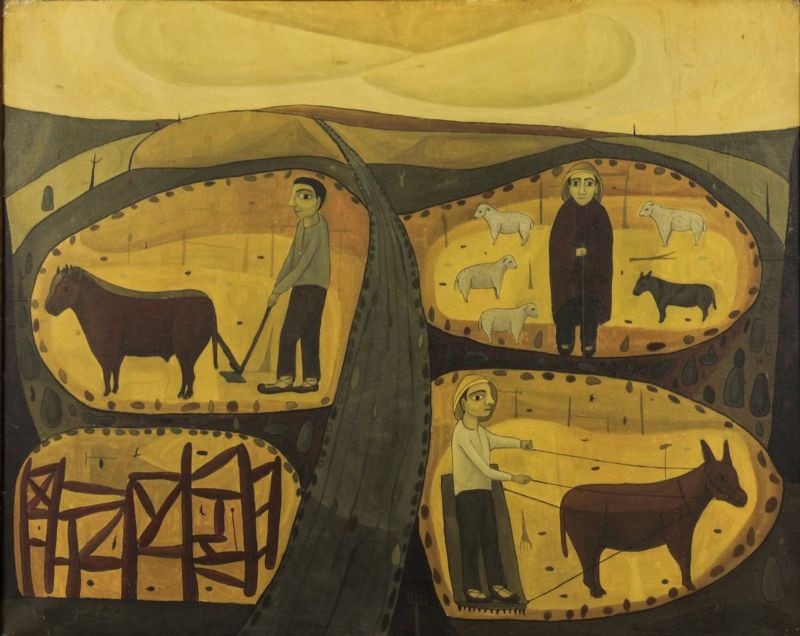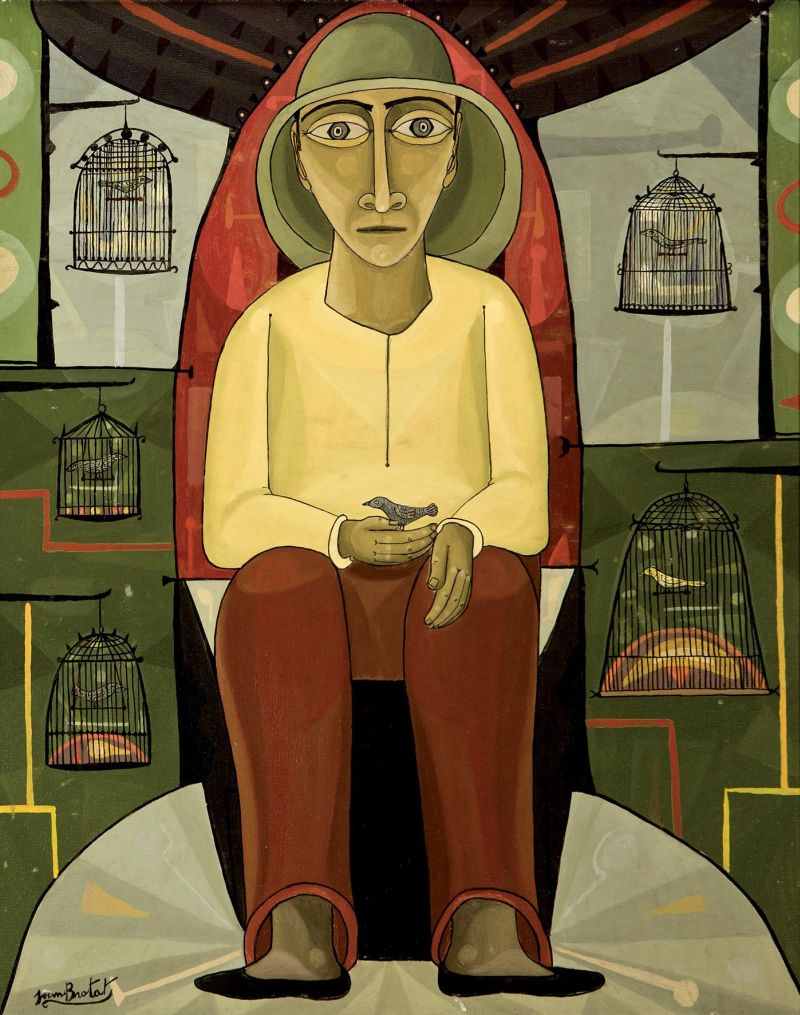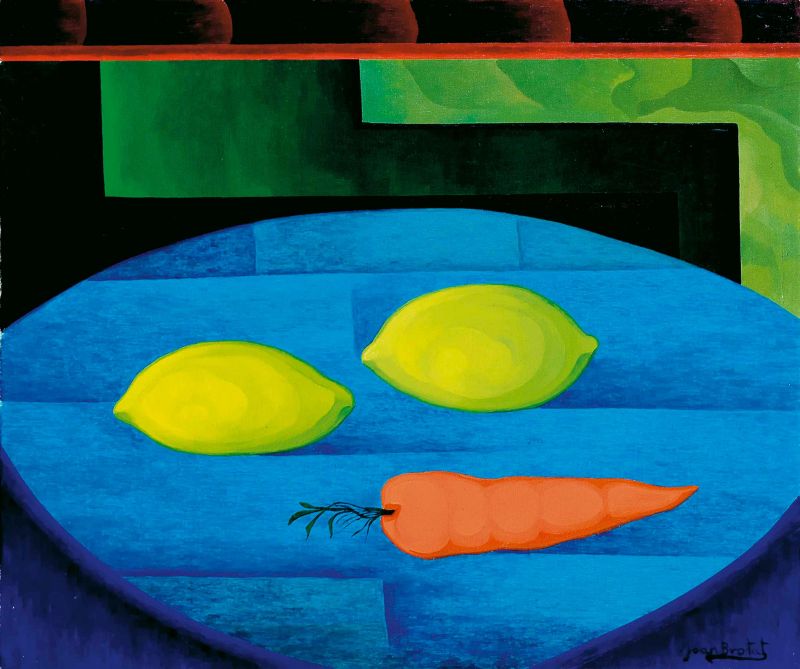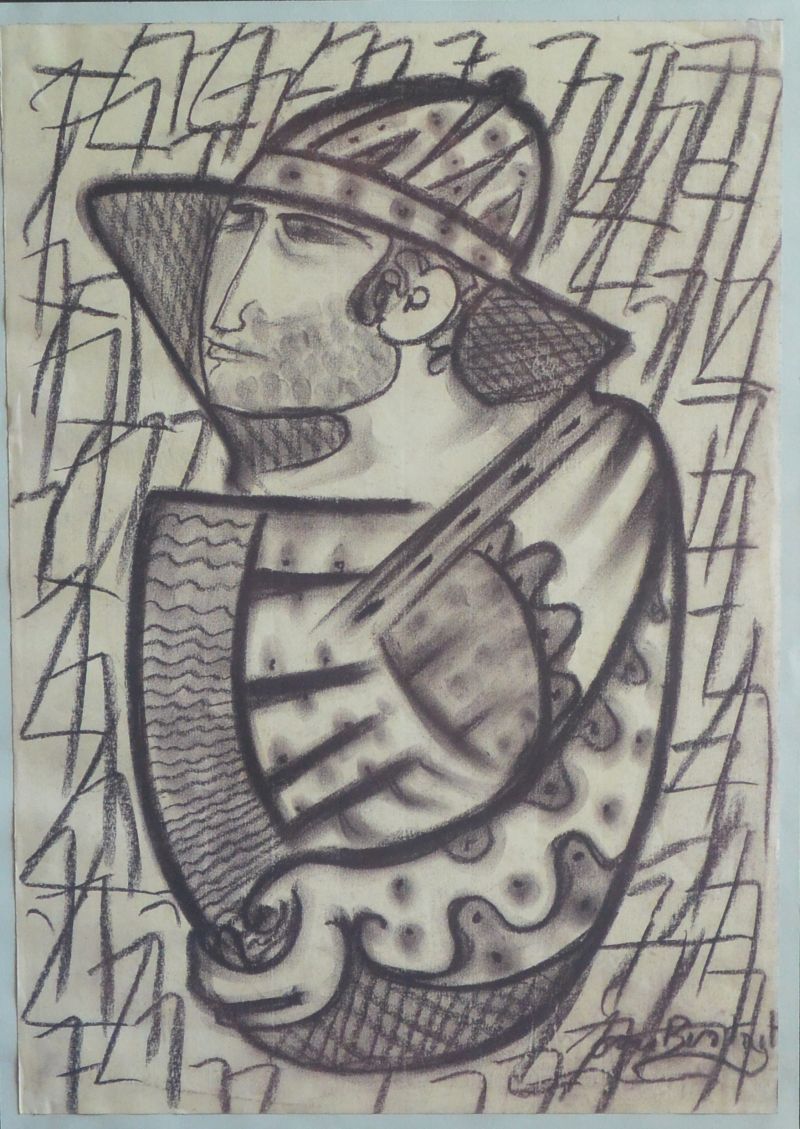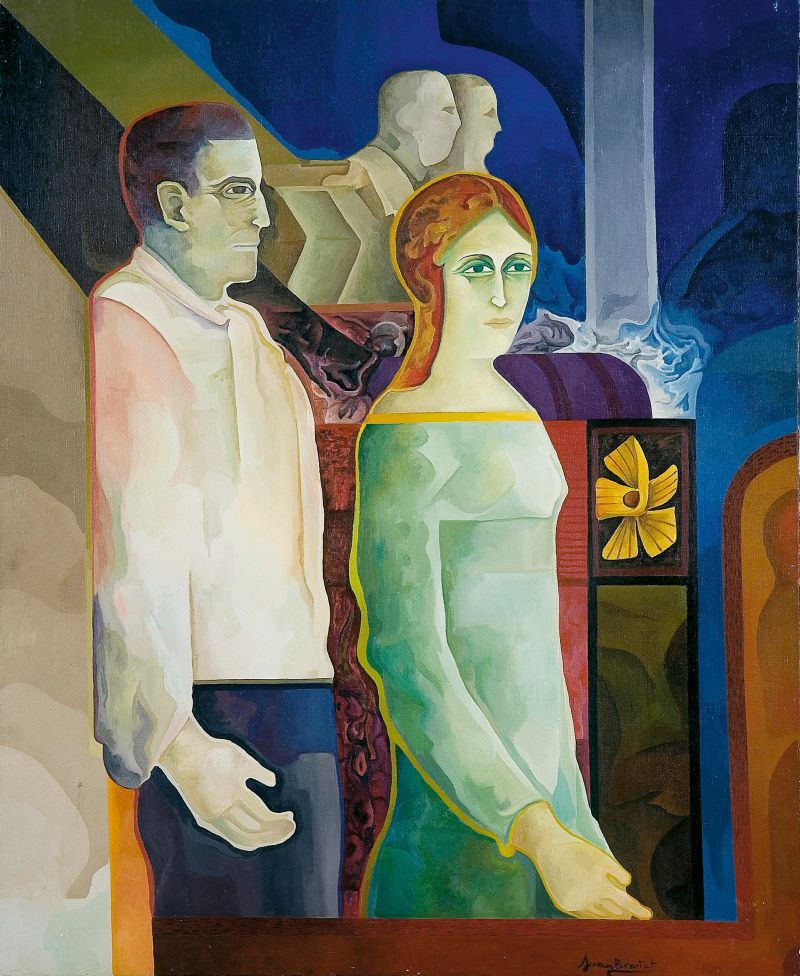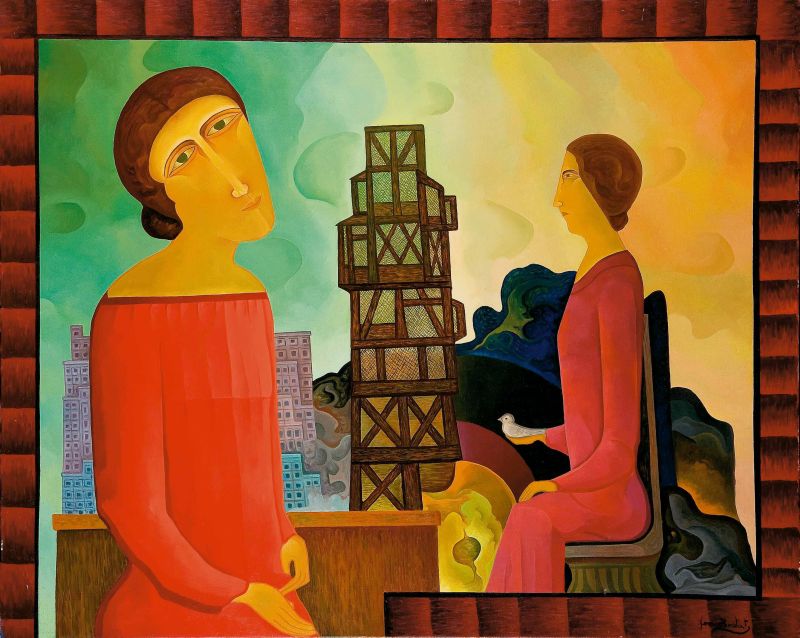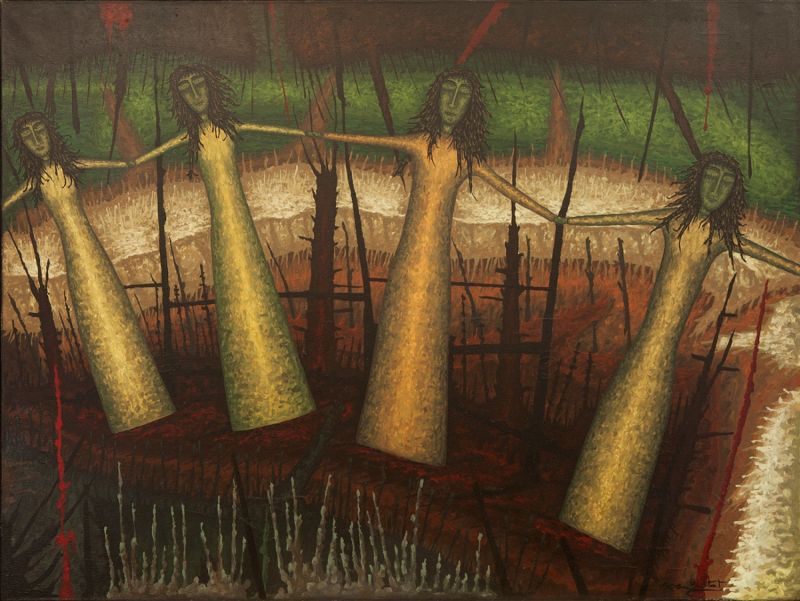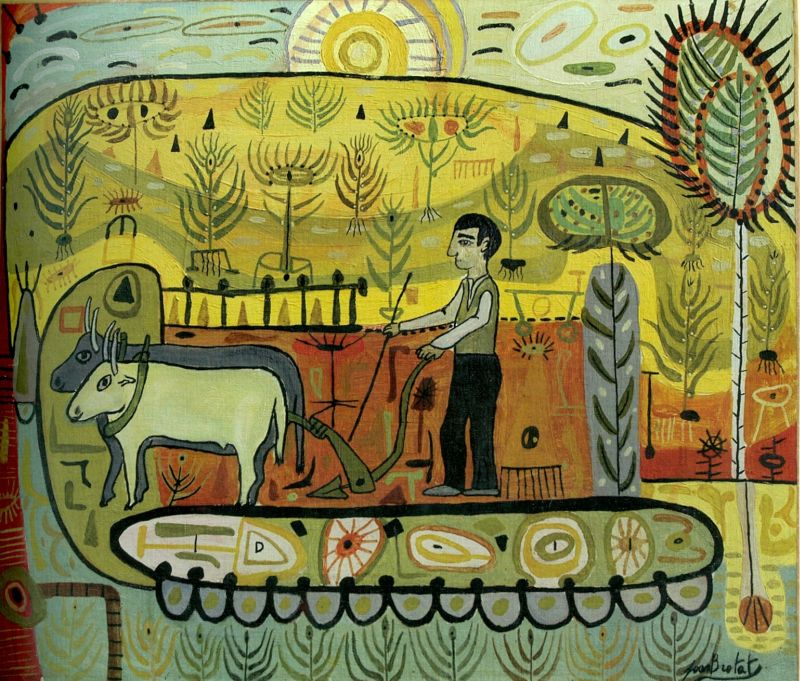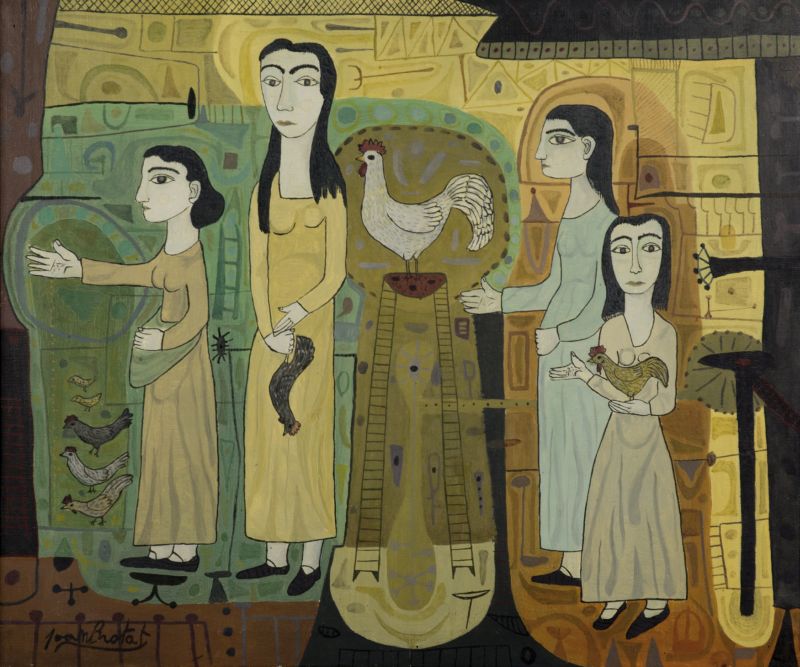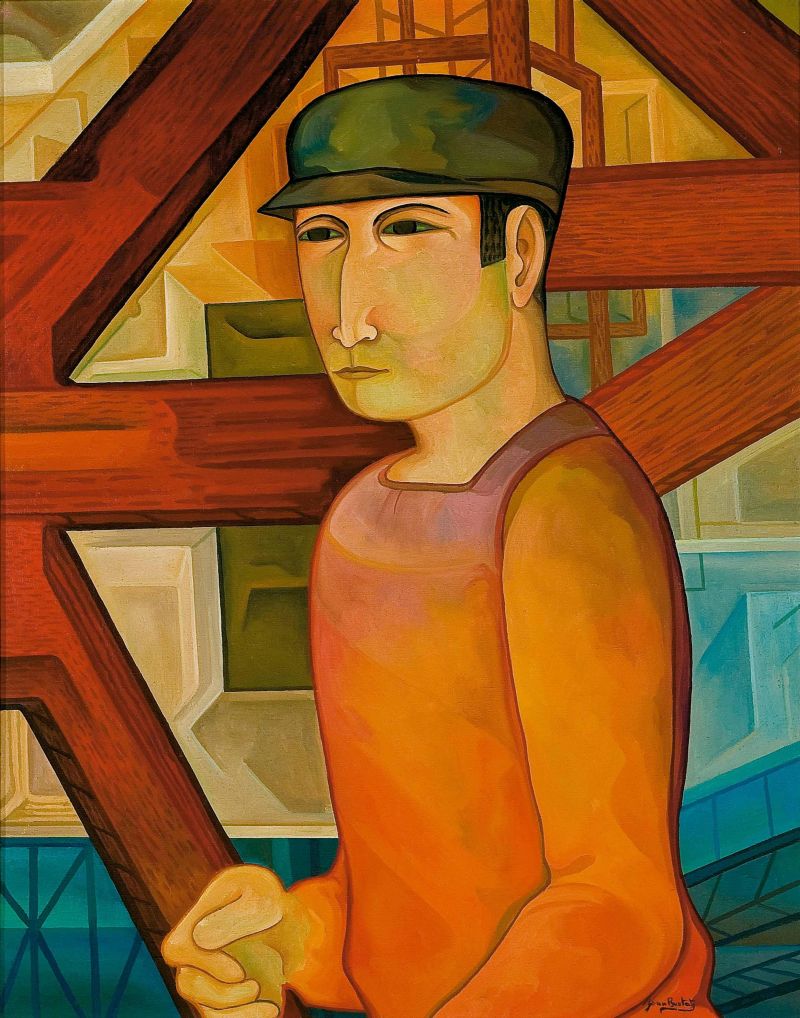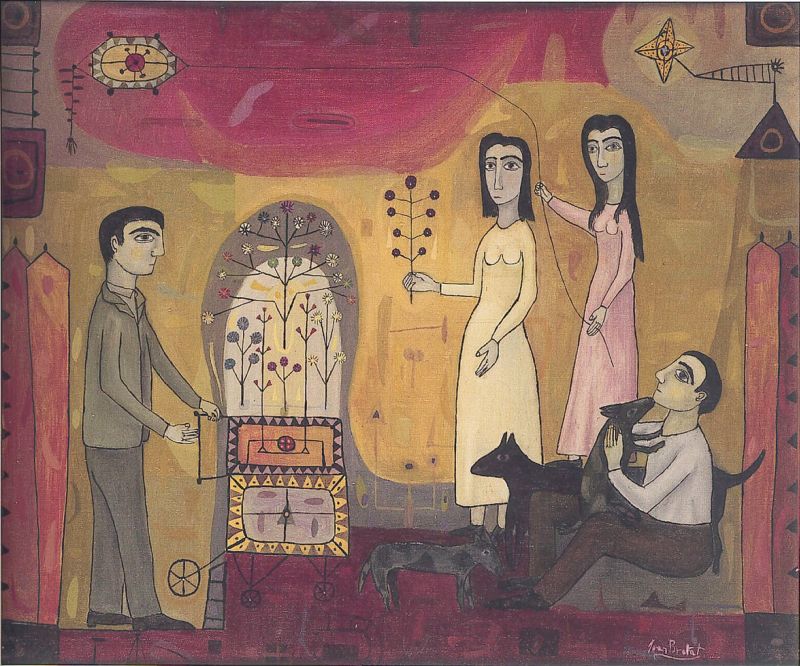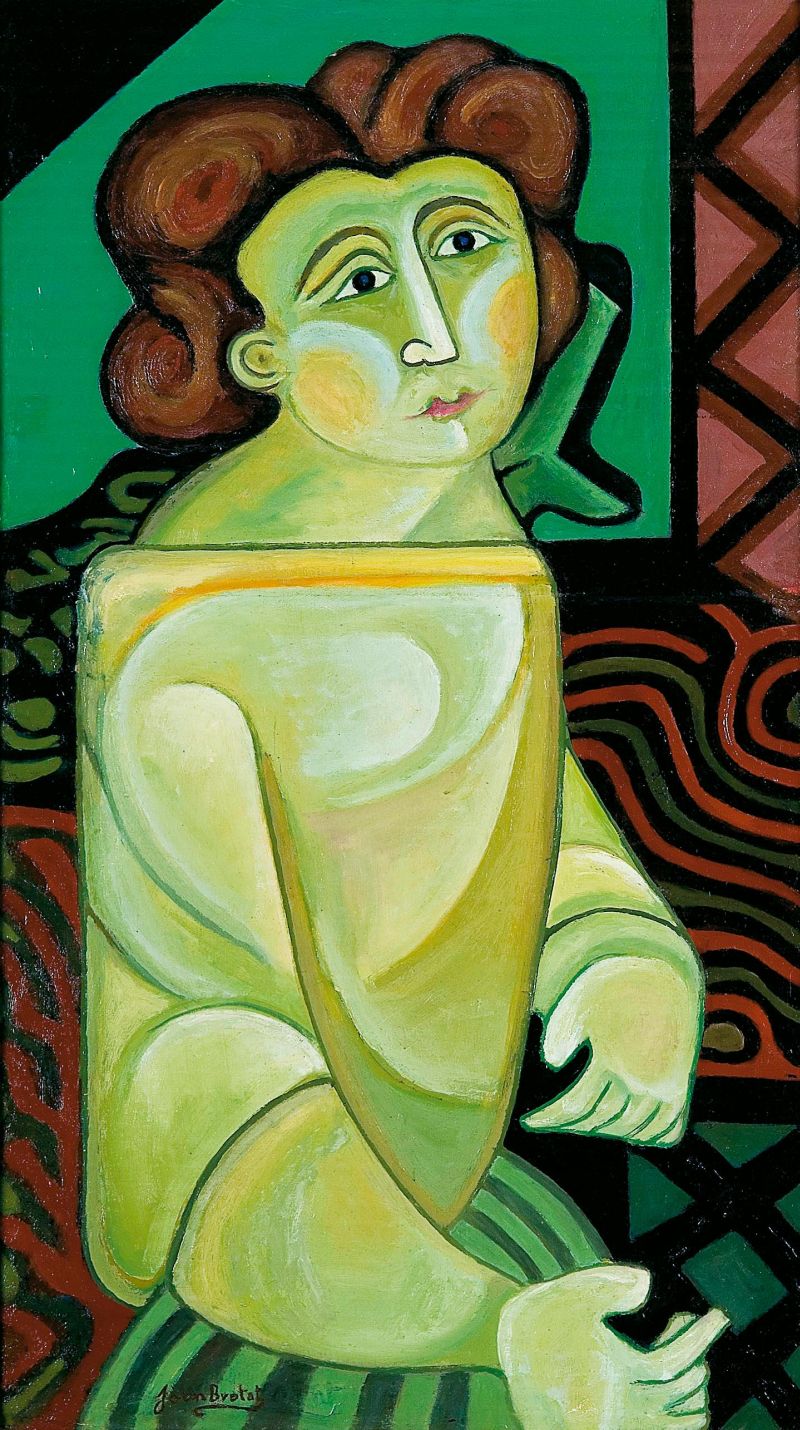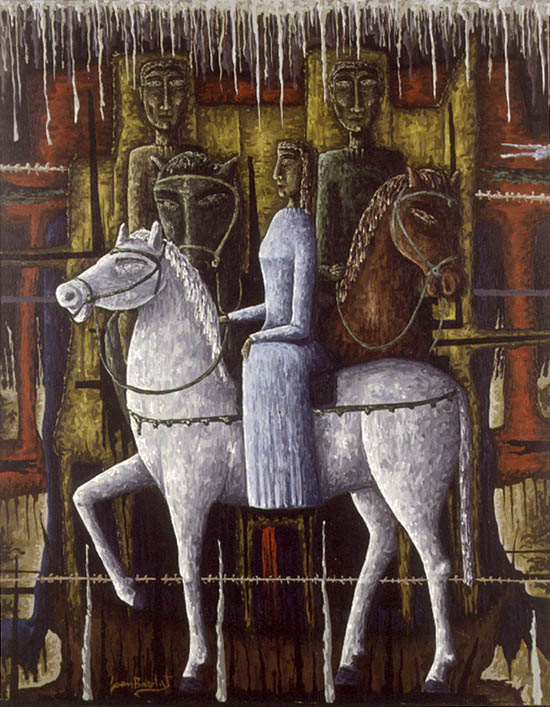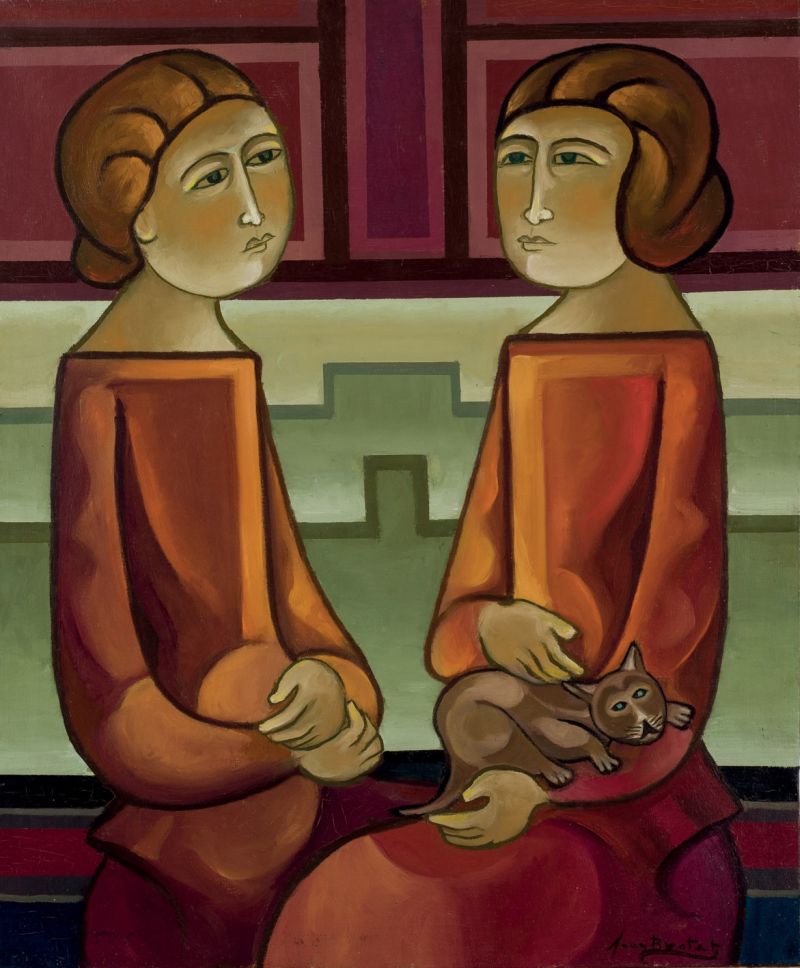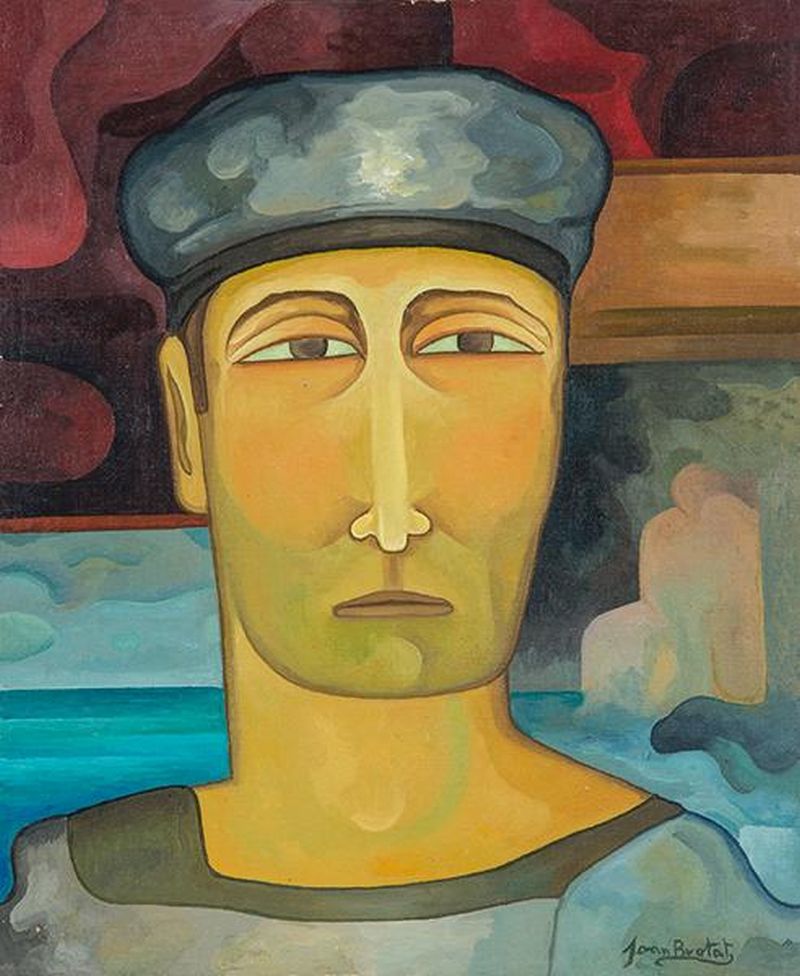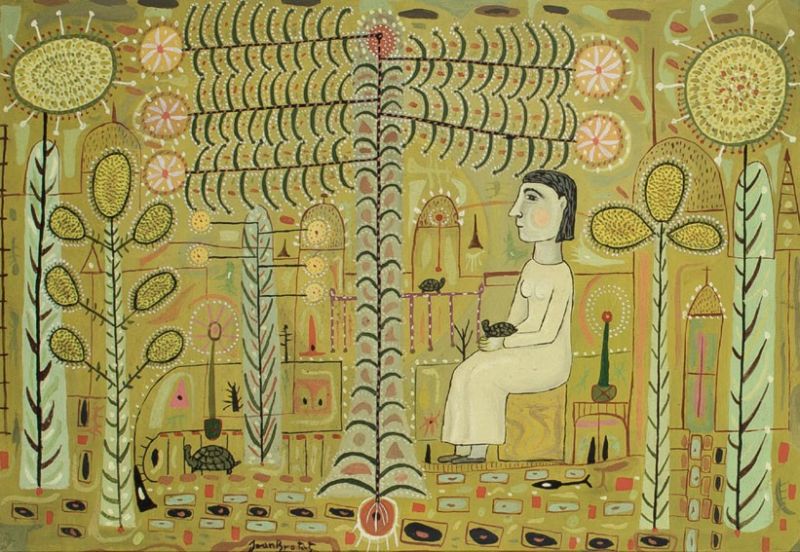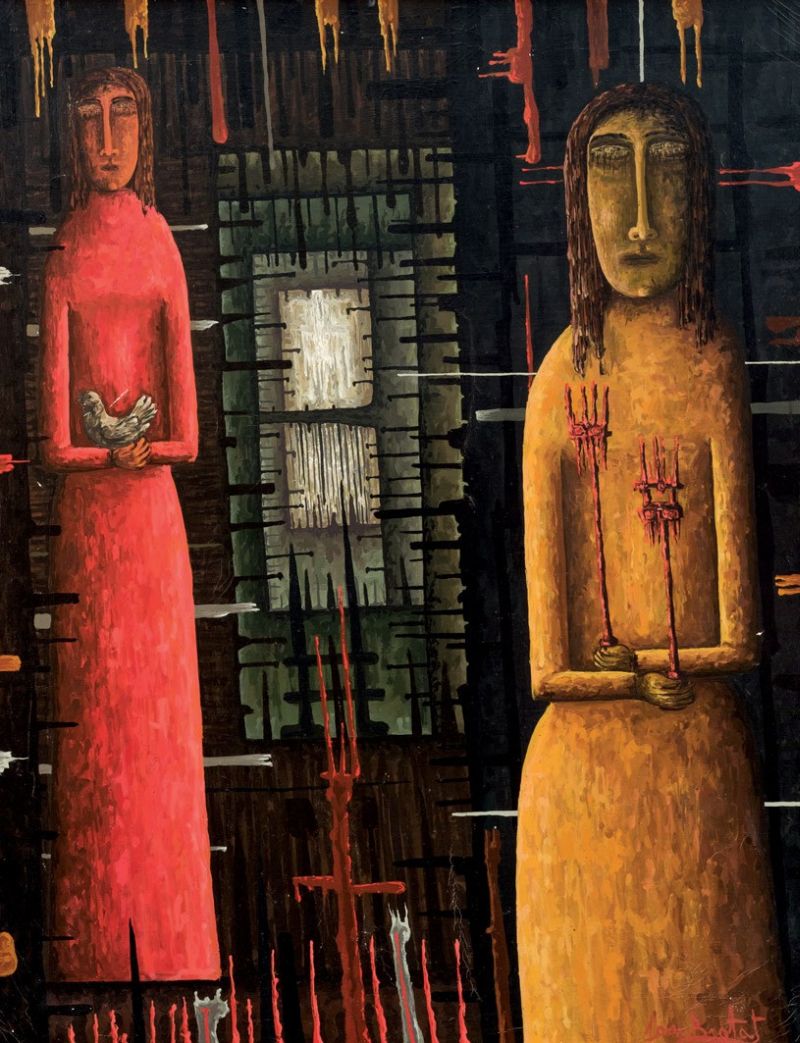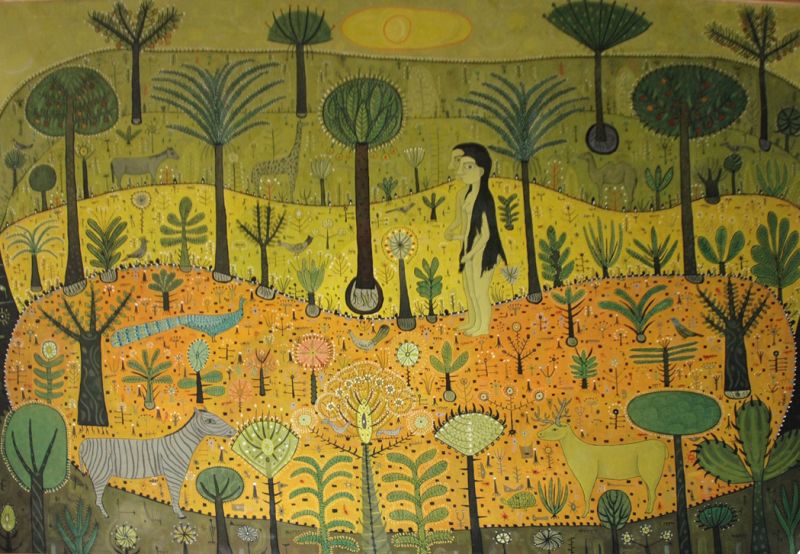Joan Brotat Vilanova
Joan Brotat Vilanova, nacido en Barcelona en 1920, fue uno de los artistas más originales y, sin embargo, hoy peor conocidos de la reconstrucción de la modernidad en los años de posguerra en España.
Su procedencia humilde, la experiencia dura de la participación en la Guerra Civil como miembro de la Quinta del Biberón (un hecho que, significativamente, ocultó toda su vida) y una posguerra muy dura, económica y moralmente, explican la dificultad y la tardanza en la carrera de Joan Brotat, que sólo se hizo pública cuando ya había cumplido los treinta años. La pintura y la creación de un mundo de inocencia absoluta fueron la respuesta a esa amargura. Después de un éxito de crítica que fue un espejismo, las circunstancias de la vida y la dinámica del sistema del arte lo relegaron posteriormente a un olvido injusto.
"Afligido / Afflicted", óleo sobre lienzo / oil on canvas, 65 x 81 cm. Blouin Art
"Los jugadores de dominó / The Domino Players", óleo sobre lienzo / oil on canvas, 65 x 81 cm. Blouin Art
Antes de su primera exposición, Brotat tuvo un breve período de informalismo y experimentación con collages y técnica gestual, pero en 1949 su obra empezó a adquirir un estilo primitivista muy personal como una reinvención de la pintura románica catalana. Fue determinante conocer al crítico José María Sucre, quien descubrió la obra de Brotat y se dispuso ayudarle y orientarle. Lo presentó al también crítico Angel Marsá, responsable de las galerías Jardín, donde expondrían Guinovart, Tharrats y el grupo Lais entre otros.
"Personajes / Characters", óleo sobre lienzo / oil on canvas, 50 x 73 cm. Blouin Art
"El Camino / The Path", óleo sobre lienzo / oil on canvas, 65 x 81 cm. Liveauctioneers
Con treinta años Brotat realizó su primera exposición en noviembre de 1950 en las Galerías Jardín, dentro del III Ciclo Experimental de Arte Nuevo. En su segunda exposición en las Galerías Jardín, en 1951, se produce el encuentro con Rodríguez Aguilera, que sería un apoyo firme durante toda su carrera. Este lo presentó a Eugenio d’Ors, que se entusiasmó con Brotat y lo incorporó en 1953 al X Salón de los Once de Madrid exponiendo con Miquel Villá, Antoni Tápies, Josep Guinovart, Rafael Zabaleta, Manolo Millares, Antonio Saura...
"Pajarero / Birdcatcher", óleo sobre lienzo / oil on canvas, 81 x 65 cm. Blouin Art
"Dos limones / Two Lemons", óleo sobre lienzo / oil on canvas, 46 x 55 cm. Blouin Art
En 1954 volvió a participar en el XI Salón de los Once, en Galerías Biosca, junto a Cristino Mallo, Angel Ferrant, Manuel Capdevila, Ramón Rogent, Carlos Pacual de Lara y Manuel Gil Pérez. Participó en Bienales Internacionales, como Venecia, Tokio, Hispano-americana, Alejandria o Bilbao. Practicó en Valencia y Manises la cerámica de la mano de Salvador Faus realizando numerosas piezas.
"Guerrero / Warrior", crayón, 50 × 35 cm. El marco verde
"Incomunicación / Incommunication"", óleo sobre lienzo / oil on canvas, 100 x 81 cm. Blouin Art
Buscó un lenguaje primigenio y sus exploraciones lo llevaron a una figuración primitiva, ruda y elemental, casi brutalista en algunos momentos, que luego se fue sofisticando y haciéndose preciosista. En sus inicios, el gesto es ágil, espontáneo y dinámico; recuerda claramente la crudeza y la fuerza del arte infantil. Pero a diferencia de los naifs, en Brotat hay una voluntad culta y reflexiva, como demuestran la vinculación al modelo románico y los esbozos abstractos, que preceden a la opción figurativa. Brotat enlazó con la corriente de primitivismo estético que se desarrolló en la Europa de posguerra y que tuvo una constancia muy notable en España, vinculada a la herencia de Joan Miró y a los debates surgidos alrededor de la llamada Escuela de Altamira. Fue, tal vez, uno de los más fructíferos representantes de esa tendencia.
"La torre / The Tower", óleo sobre lienzo / oil on canvas, 75 x 92 cm., c.1972. Blouin Art
"La sardana de les cinc dones / La sardana de las cinco mujeres / The Sardana of the Five Women"
Óleo sobre lienzo / oil on canvas, 97 x 130 cm. Galerías de Arte
Hijo de zapateros y vecino de un barrio tradicional de artesanos, una de las temáticas clave de Brotat es el mundo del trabajo, pero no el de la industria y la tecnología, que sería el propio de las dinámicas de su tiempo, en la era atómica y de los inicios de la sociedad de consumo, sino el de la artesanía y la agricultura, el de las tareas y los modos de hacer anteriores a la alienación. Había en él una especie de ética genuina del artesano.
Murió de cáncer en 1990.
"Campesino / Peasant", óleo sobre lienzo / oil on canvas, 1955. Universidad de Jaén
"Sin título / Untitled", óleo / oil, 46 x 55 cm., c.1955. Ars Magazine
Joan Brotat Vilanova, born in Barcelona in 1920, was one of the most original artists - however, worse known today - of the reconstruction of modernity in the postwar years in Spain.
His humble origin, the hard experience of participating in the Civil War as a member of the Quinta del Biberón (a fact that, significantly, hid his whole life) and a very hard postwar period, economically and morally, explain the difficulty and the delay in Joan Brotat's career, which only became public when he was thirty years old. Painting and the creation of a world of absolute innocence were the answer to that bitterness. After a critical success that was a mirage, the circumstances of life and the dynamics of the art system subsequently relegated him to an unjust oblivion.
"Personaje / Character", óleo sobre lienzo / oil on canvas, 93 x 73. Blouin Art
"El carrer des flors / La calle de las flores / The Street of the Flowers"
Óleo sobre tela / oil on canvas, 54 x 65 cm., 1953.
Museu des Valls (Tarragona, España / Spain). La caja de laca
Before his first exhibition, Brotat had a brief period of informalism and experimentation with collages and gestural technique, but in 1949 his work began to acquire a very personal primitivist style as a reinvention of Catalan Romanesque painting. It was crucial to meet the critic José María Sucre, who discovered the work of Brotat and decided to help and guide him. He presented Brotat to the critic also Angel Marsá, responsible for the Garden galleries, where they would exhibit Guinovart, Tharrats ... and the Lais group among others.
"Jeune fille et lion dans paysage / Niña y león en un paisaje / Young Girl And Lion in a Landscape"
Óleo sobre tela / oil on canvas, 54 x 65 cm., 1958
Galeria Joan Gaspar (Barcelona, España / Spain)
"Mujer / Woman", óleo sobre cartón / oil on cardboard, 62 x 35 cm. Blouin Art
With thirty years old, Brotat made his first exhibition in November of 1950 in the Galerías Jardín, within the III Experimental Cycle of New Art. In his second exhibition at the Galerías Jardín, in 1951, happened the meeting with Rodríguez Aguilera, which would be a firm support throughout his career. He presented it to Eugenio d'Ors, who became enthusiastic about Brotat and incorporated him in 1953 into the X Salón de los Once in Madrid, exhibiting with Miquel Villá, Antoni Tápies, Josep Guinovart, Rafael Zabaleta, Manolo Millares, Antonio Saura ...
"Sin título / Untitled", óleo sobre cartón / oil on cardboard, 38 x 46 cm., 1953
Colección privada / Private Collection (Barcelona, España / Spain). La caja de laca
"Sin título / Untitled", 92 x 73 cm., 1964. MacVac
In 1954 he returned to participate in the XI Salón de los Once, in Galerías Biosca, along with Cristino Mallo, Angel Ferrant, Manuel Capdevila, Ramón Rogent, Carlos Pacual de Lara, and Manuel Gil Pérez. He participated in International Biennials, such as Venice, Tokyo, Hispano-American, Alejandria or Bilbao. He practiced in Valencia and Manises the ceramics under Salvador Faus, making numerous pieces.
"Dos mujeres y el gato / Two Women and The Cat"
Óleo sobre lienzo / oil on canvas, 65 x 54 cm. Subastas Durán
"Marinero / Sailor"
Óleo sobre lienzo montado sobre panel / oil on canvas laid on board, 45,5 x 38 cm., 1974. Blouin Art
He sought a primitive language and his explorations led him to a primitive figuration, rude and elemental, almost brutalist in some moments, which later became sophisticated and becoming precious. In the beginning, the gesture is agile, spontaneous and dynamic; clearly recalls the rawness and strength of children's art. But unlike the naïfs, in Brotat there is a cultured and reflective will, as shown by the link to the Romanesque model and the abstract sketches, which precede the figurative option. Brotat linked with the movement of aesthetic primitivism that developed in post-war Europe and had a very remarkable record in Spain, linked to the legacy of Joan Miró and the debates that arose around the so-called School of Altamira. He was, perhaps, one of the most fruitful representatives of that trend.
"La dama de las tortugas / The Lady of the Turtles"
Óleo sobre lienzo / oil on canvas, 33 x 47 cm. Subastas Durán
"Dos figuras con paloma / Two Figures With a Dove"
Óleo sobre lienzo / oil on canvas, 93 x 73 cm. Subastas Durán
Son of shoemakers and neighbor of a traditional neighborhood of artisans, one of the key themes of Brotat is the world of work, but not that of industry and technology, which would be typical of the dynamics of his time, in the atomic age and from the beginnings of the consumer society, but that of craftsmanship and agriculture, that of tasks and ways of doing prior to alienation. There was a kind of genuine craftsman ethic in him.
He died of cancer in 1990.
"Adán y Eva en el Paraíso / Adam and Eve in Paradise"
Óleo sobre lienzo / oil on canvas, 128,9 x 161,9 cm. Doyle
Fuentes / Sources:
* Reseña de la muestra "Paraíso melancólico" / Review of the show "Melancholic Paradise", 10/2017 - 1/2018
* Perfil del artista / Artist's profile. Col·lecció Gelonch Viladegut

